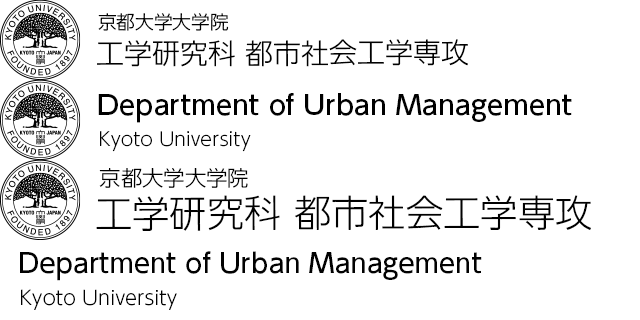Educational Policy
As the list of labs shows, the Department of Urban Management consists of six courses: Urban Social Infrastructure Engineering (full-time), Urban Society Planning (core), Transportation Engineering and Management (core), Lifeline Engineering (core), and Geo-Water System Engineering and Management (core). These courses are conducted by academic staff in the department, and the Urban and Regional Disaster Control (cooperation), which is run by academic staff at our partner laboratories at the Disaster Prevention Research Institute. These courses provide for the wide range of lecture subjects required for the educational program of the department.
Along with lecture subjects, the department offers some seminar-based subjects. In these, students independently plan and implement project surveys and company seminars, then summarize the results and give presentations on their findings. These exercises greatly promote the skills of report preparation, presentation, and discussion, and the ability to work independently. They also promote self-confidence.
A distinguishing characteristic of the department's curriculum is a special course it has set up that features a series of related subjects. As an additional incentive to students, the department presents certificates to students who complete the course. The department runs the course not only for students in the department but also for professional engineers to enable them to receive refresher training. At the same time, we expect the course to be the first step in setting up a graduate school for professionals (professional school) to provide advanced training in specialized technical fields. For this, we plan to enhance our online education subjects so that the course can be taken in remote areas.
